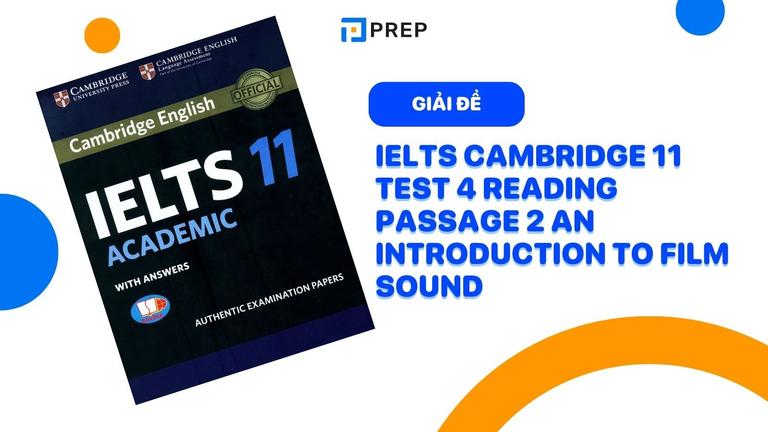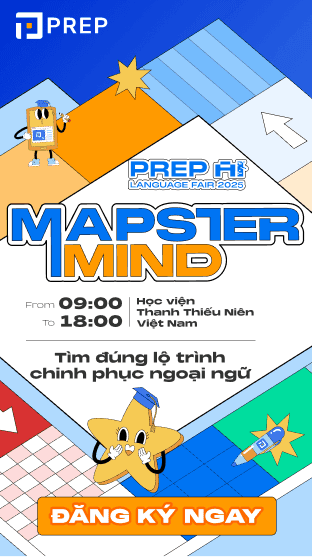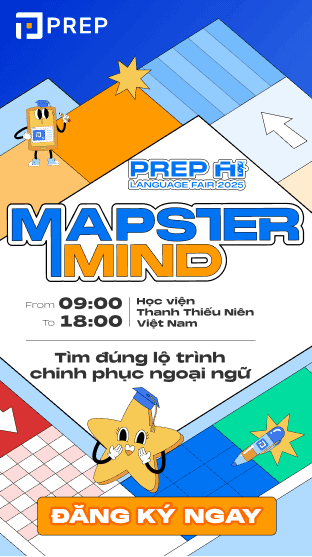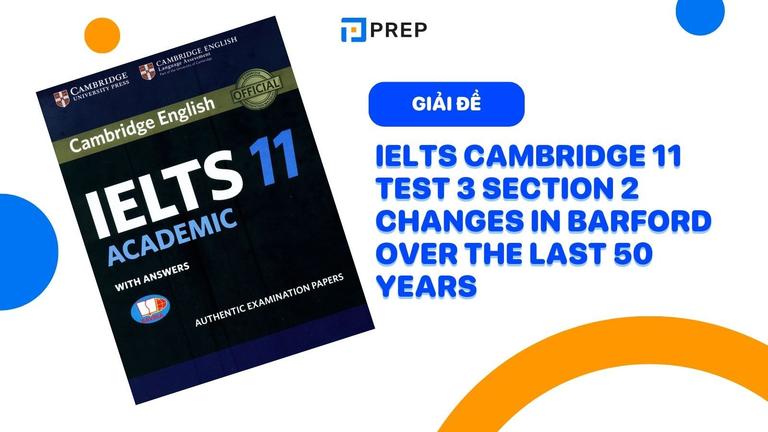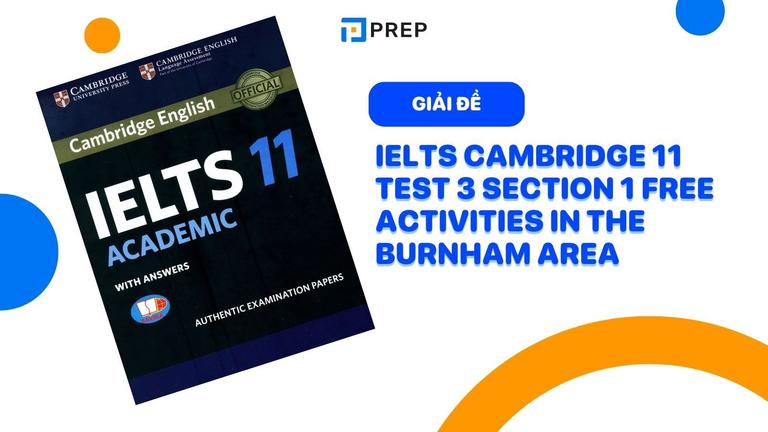Đề bài, bài mẫu IELTS Writing Task 2 Schools have the social responsibility to discourage children from eating junk food
IELTS Writing Task 2 Schools have the social responsibility to discourage children from eating junk food là đề bài đã từng xuất hiện trong kỳ thi IELTS thực chiến. Ở bài viết hôm nay, PREP xin chia sẻ đến bạn đề bài, dàn ý cùng phần bài mẫu band 7.0+ siêu chất lượng. Tham khảo ngay bạn nhé!

I. Đề bài và dàn bài IELTS Writing Task 2 Schools have the social responsibility to discourage children from eating junk food
Cùng PREP tìm hiểu ngay dưới đây đề bài cùng dàn bài chi tiết của IELTS Writing Task 2 Schools have the social responsibility to discourage children from eating junk food bạn nhé!
1. Đề bài
You should spend about 40 minutes on this task.
Write about the following topic:
Some people state that schools should have a social responsibility to encourage children not to eat junk food. Others believe that parents should take responsibility for their children's eating habits.
Discuss both views and state your opinion.
Give reasons for your answer and include any relevant examples from your own knowledge or experience.
Write at least 250 words.

2. Dàn bài
Tham khảo ngay dàn bài chi tiết IELTS Writing Task 2 Schools have the social responsibility to discourage children from eating junk food dưới đây bạn nhé!
|
Introduction |
|
|
Why schools should have a social responsibility to discouraging children from eating junk food |
|
|
Why parents should take responsibility for their children's eating habits |
|
|
Conclusion & Opinion |
|
II. Bài mẫu IELTS Writing Task 2 Schools have the social responsibility to discourage children from eating junk food
Sau khi đã nghiên cứu kỹ phần để bài cũng dàn ý chi tiết, hãy cùng PREP chuyển sang tham khảo bài mẫu IELTS Writing Task 2 Schools have the social responsibility to discourage children from eating junk food 7+ siêu chất lượng dưới đây bạn nhé!
Language learning in schools has been an ongoing discussion in society. On one side of the debate, people argue that educational institutions should not compel students to learn a foreign language, especially those who do not possess a natural proficiency. I agree with this sentiment, despite some claims that language learning should be compulsory at school.
On the one hand, a policy of mandatory language learning at school may be reasonable. Firstly, it can set schoolchildren up for success in the future. Specifically, proficiency in an additional language expands a child’s cognitive abilities, increasing their adaptability, creativity and problem-solving skills. It could, therefore, open many doors for them to improve their career prospects or develop intellectually. Secondly, a school which has implemented the aforementioned scheme can enhance its prestige. By dispensing a linguistically diverse curriculum, such a school can attract students from wealthy backgrounds, or allow itself to receive better funding. At the very least, it could offer additional languages as electives, which the learners could choose to do or opt out of pursuing.
There is an argument against mandatory language education in schools, however. Linguistic talent, just like an affinity for arts or sports, varies between individuals, so forcing a student who lacks this ability to study a foreign language would cause them to struggle academically. This burden may lead to a sense of failure and inferiority, thereby hampering their overall academic progress. Even more so, this could also diminish the interest of a child in learning, eventually leading to negative implications. In addition, having to provide foreign language lessons to many students who are neither talented nor interested in them is likely a waste of resources, straining public schools’ budgets. Unless the education sector receives more government funding, mandating such a policy at school will be difficult.
In conclusion, while acknowledging the various benefits of language learning, I disagree with compulsory foreign language education at school. Educational institutions ought not to impose, but rather encourage and facilitate language acquisition in a way that creates a voluntary, enjoyable and meaningful experience for all students.
Từ vựng ăn điểm được sử dụng trong bài mẫu IELTS Writing Task 2 Schools have the social responsibility to discourage children from eating junk food:
- Obesity (n.): chứng bệnh béo phì
- Urgent (adj.): cấp bách
- Spark sth (v.): làm bùng lên, dấy lên
- Vigorous (adj.): sôi nổi
- Assume a responsibility (v.): chịu trách nhiệm
- Abstain from sth (v.): kiêng thứ gì đó
- Collaborate (v.): hợp tác
- Dietary habits (n.): thói quen ăn uống
- Be incorporated into sth (v.): được kết hợp vào trong điều gì đó
- Conducive (adj.): thuận lợi
- Shape/model sth (v.): định hình điều gì đó
- Wholesome (adj.): lành mạnh
- Nutritive (adj.): giàu dinh dưỡng
- Curtail sth (v.): cắt giảm điều gì đó
- Concerted effort (n.): nỗ lực phối hợp
- Foundational (adj.): nền tảng
- Take sb grocery shopping (v.): dẫn ai đó đi mua đồ ăn
- Preclude (v.): ngăn cản
- Reinforce sth (v.): củng cố điều gì đó
- Compound (v.): nhân lên
- Steer (v.): dẫn lối
Tham khảo thêm bài viết:
- Đề bài, bài mẫu IELTS Writing Task 2 chủ đề: Job seeking
- Đề bài, bài mẫu IELTS Writing Task 2 chủ đề: Problems for young people living in the cities and solutions
Làm thế nào để tự nâng cao band điểm IELTS Writing từng ngày khi học tại nhà? Câu hỏi này hoàn toàn không khó trả lời nếu bạn có sự trợ giúp của phòng luyện viết ảo VWR của PREP. Vậy phòng VWR có những gì mà được nhiều người sử dụng đến vậy?
- Phòng Writing ảo tạo không gian luyện tập Writing Task 2 theo phương pháp Process Writing - dạy tập trung vào quy trình tạo nên 1 bài viết hoàn chỉnh, là nơi luyện tập và nâng trình Writing nhanh chóng.
- Cụ thể là học sinh sẽ trải qua nhiều chặng tự tư duy (đọc đề và tự brainstorm ý tưởng). Trong trường hợp bí ý tưởng hoặc muốn tham khảo thêm gợi ý của giáo viên thì bạn có thể Xem phần gợi ý Outline mẫu và quyết định hướng viết của bài. Sau đó trong quá trình viết bài, TeacherBee sẽ hướng dẫn các bạn chi tiết cách viết cho từng câu và từng ý.
- Cuối cùng Teacher bee sẽ feedback cho bạn về bài viết của mình để bạn có thể viết lại một bản version 2 cuối cùng là bản hoàn chỉnh nhất.
- Điểm mạnh của phương pháp Process Writing giúp các bạn rèn luyện được tính tư duy trong việc tự phát triển ý tưởng của bài viết.
Đây mới chỉ là một điểm nhỏ trong vô vàn các tính năng lợi hại khác tại phòng Writing ảo, còn chần chừ gì nữa mà chưa ấn vào đây tham gia bạn nhé!
TRẢI NGHIỆM IELTS WRITING TASK 2 CÙNG PHÒNG WRITING ẢO BẠN NHÉ!
Hy vọng bài viết trên đây đã cung cấp cho bạn đầy đủ đề bài, dàn ý chi tiết và bài mẫu IELTS Writing Task 2 Schools have the social responsibility to discourage children from eating junk food chất lượng band 7.0+. Thường xuyên theo dõi PREP để cập nhật nhiều hơn nữa kiến thức tiếng Anh bổ ích bạn nhé!

Chào bạn! Mình là Hiền Hoàng, hiện đang đảm nhận vai trò quản trị nội dung sản phẩm tại Blog của website prepedu.com.
Với hơn 5 năm tự học các ngoại ngữ như tiếng Anh, tiếng Trung và ôn luyện một số kỳ thi IELTS, TOEIC, HSK, mình đã tự đúc rút được nhiều kinh nghiệm để hỗ trợ hàng nghìn người đang gặp khó khăn trong việc học ngoại ngữ. Hy vọng rằng những chia sẻ phía trên sẽ giúp ích cho bạn trong quá trình tự ôn luyện thi hiệu quả tại nhà!
Bình luận
Nội dung premium
Xem tất cảLộ trình cá nhân hoá
Có thể bạn quan tâm
Kết nối với Prep

MSDN: 0109817671.
Địa chỉ liên hệ: Tòa nhà Vinaconex, 34 Láng Hạ, phường Láng, TP Hà Nội.
Trung tâm CSKH tại HN: Lô 21 C2 Khu đô thị Nam Trung Yên, phường Yên Hòa, TP Hà Nội.
Trung tâm CSKH tại HCM: 288 Pasteur, Phường Xuân Hòa, TP Hồ Chí Minh
Trụ sở Công ty: Số nhà 20, ngách 234/35 đường Hoàng Quốc Việt, phường Nghĩa Đô, TP Hà Nội.
Phòng luyện ảo - Trải nghiệm thực tế - Công nghệ hàng đầu.
Hotline: 0931 42 8899.
Trụ sở Công ty: Số nhà 20, ngách 234/35 đường Hoàng Quốc Việt, phường Nghĩa Đô, TP Hà Nội.
Giấy chứng nhận hoạt động đào tạo, bồi dưỡng số 1309/QĐ-SGDĐT ngày 31 tháng 07 năm 2023 do Sở Giáo dục và Đào tạo Hà Nội cấp.




